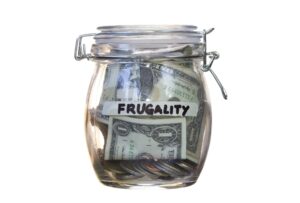
Life is unpredictable; no matter how well we plan, unexpected events can occur anytime. From job losses and medical emergencies to car repairs and home maintenance issues, these unexpected expenses can quickly derail our financial stability. In such situations, having an emergency fund can be a lifesaver, providing a crucial buffer against life’s curveballs and protecting our financial future.
This article explores the importance of an emergency fund and offers practical tips for building and maintaining one.
The Importance of an Emergency Fund
An emergency fund is a dedicated savings account designed to cover unforeseen expenses. It serves as a financial safety net, preventing you from going into debt or dipping into your retirement savings when faced with unexpected costs. Here are a few reasons why an emergency fund is essential:
- Avoid High-Interest Debt: Without an emergency fund, you may be forced to rely on credit cards or personal loans to cover unexpected expenses. These options often come with high interest rates, which can quickly spiral into a cycle of debt that is difficult to break free from.
- Maintain Financial Stability: Life’s storms can strike anytime, and an emergency fund can help you weather them without disrupting your regular financial obligations, such as rent or mortgage payments, utility bills, and other essential expenses.
- Reduce Stress and Anxiety: Knowing you have a financial cushion to fall back on can provide peace of mind and reduce the stress and anxiety associated with unexpected expenses.
Determining the Size of Your Emergency Fund
There is no one-size-fits-all approach to determining the ideal size of your emergency fund. However, most financial experts recommend having enough savings to cover three to six months of living expenses. This amount can vary based on your circumstances, such as your job stability, income level, and potential risk factors.
If you have a stable job and a low risk of job loss, you may be comfortable with a smaller emergency fund, perhaps three months’ worth of expenses. However, if you are self-employed, have a variable income, or work in a volatile industry, it’s wise to aim for a larger emergency fund, potentially six months’ worth of expenses or more.
Building Your Emergency Fund
Building an emergency fund takes time and discipline, but it’s an investment in your financial security. Here are some strategies to help you build your emergency fund:
- Start Small: Don’t be discouraged if you can’t contribute a large sum right away. Start with whatever amount you can afford, even if it’s just $50 or $100 per month. Consistency is key, and small contributions can add up over time.
- Automate Your Savings: Set up automatic transfers from your checking account to your emergency fund account. This way, you won’t have to remember to transfer the money manually, and the savings will happen without much effort.
- Prioritize Your Emergency Fund: Treat your emergency fund contribution as a non-negotiable expense, like your rent or mortgage payment. Make it a priority in your budget, and contribute to it before allocating money for discretionary spending.
- Leverage Windfalls and Bonuses: If you receive a tax refund, bonus from work, or any other unexpected income, consider putting a portion or all of it towards your emergency fund.
Maintaining Your Emergency Fund
Once you’ve built your emergency fund, it’s essential to maintain and replenish it when necessary. Here are a few tips for maintaining your emergency fund:
- Replenish After Use: If you need to dip into your emergency fund, make it a priority to replenish it as soon as possible. This will ensure that you’re prepared for the next unexpected expense.
- Adjust for Changing Circumstances: Review your emergency fund periodically and adjust the target amount as your living expenses or financial situation changes. For example, if you get a raise or take on additional financial responsibilities, you may need to increase your emergency fund accordingly.
- Separate from Other Savings: Keep your emergency fund separate from other savings accounts, such as retirement or long-term savings. This will prevent you from inadvertently spending your emergency fund on non-emergency expenses.
Navigating the Complexities of Trade Credit
While it’s prudent to establish and nurture an emergency fund, it’s equally important to understand the nuances of trade credit and its role in your financial strategy. Trade credit, the credit extended by suppliers or vendors for goods or services, can serve as a valuable resource during periods of cash flow constraints.
However, it’s essential to recognize that trade credit should complement your emergency fund, not replace it. Relying excessively on trade credit may strain relationships with suppliers and potentially incur additional interest charges. Moreover, consistent failure to meet payment obligations could result in legal ramifications.
By striking a balance between utilizing trade credit judiciously and maintaining a robust emergency fund, you can fortify your financial stability and foster mutually beneficial relationships with suppliers.
Conclusion
Life is full of unexpected twists and turns, and an emergency fund can be a powerful tool to help you navigate these challenges with confidence. By building and maintaining an adequate emergency fund, you can protect your financial future, avoid high-interest debt, and maintain financial stability even in the face of life’s storms. Building your emergency fund may take time and discipline, but the peace of mind and financial security it provides are invaluable.
Remember, an emergency fund is an investment in your financial well-being, and by prioritizing it, you’ll be better equipped to weather any storms that come your way.





























